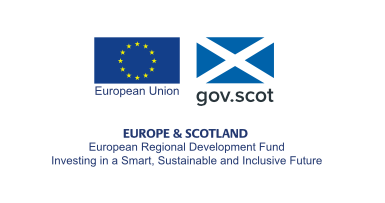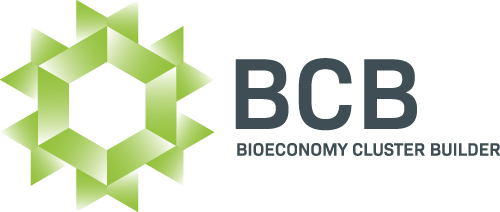This event will consider a range of novel approaches for transforming local waste bioresources into textile and building materials. Hosted by the Bioeconomy Cluster Builder and Dr Miriam Ribul, the Materials Circularity research strand lead of the UK Research and Innovation (UKRI) Interdisciplinary Textiles Circularity Centre, it will bring together inspiring speakers and include focussed breakout spaces to facilitate connection and discussion.
Webinar recordings are now available
Join us to hear a range of perspectives and engage with diverse stakeholders from the creative and scientific communities, as they consider design and manufacturing opportunities in this rapidly evolving area.
Speakers
- Introduction to the UKRI Interdisciplinary Textiles Circularity Centre, Dr Miriam Ribul
- Dr Alexandra Lanot from the University of York will present her project within the Textile Circularity Centre where they are developing a technology platform to transform textile and other cellulosic wastes into circular and low-carbon materials for textile applications.
- Turner Prize award finalists Cooking Sections will demonstrate the value of creative practice in achieving radical local transformations. They will present the CLIMAVORE Builds project, sharing perspectives on food system change on the Isle of Skye, which was recently exhibited at Tate Britain in London.
- Dr Dawn Ellams will present the Future Fashion Factory programme which supports a variety of industry-led collaborative R&D projects, bringing together industry and academic partners to solve commercial challenges.
- Aurelie Fontan will present a summary of her the FFF Proof of Concept project in collaboration with the Royal College of Art, University of Huddersfield and Burberry to explore local production lines for manufacturing mycelium leather (made from the roots of mushrooms) on an industrial scale using low-impact materials and adopting a circular economy model.
- Renuka Ramanujam will review the progress of her cutting edge project HUID which is developing innovative materials from waste onion skins.
Presentations will be followed by breakout sessions aimed at fostering new connections and collaboration. Thematic areas will include; new material properties and processes, integration of waste-derived biomaterials in existing technology and supply chains, opportunities for local transformation of waste bioresources into circular materials, funding for materials innovation. Please indicate during the registration process which break-out room you would like to attend. - Rachel Clowes, founder of The Sustainable Sequin Company, will present her current FFF project in collaboration with University of Leeds and the Royal College of Art. This project aims to perfect UK-made, commercially viable biodegradable sequins, made from renewable feedstock, including waste and by-products.
The Bioeconomy Cluster Builder (BCB) is a three-year collaboration between the Industrial Biotechnology Innovation Centre (IBioIC), Innovate UK KTN and Scottish Enterprise. The project aims to grow the Scottish bioeconomy by raising awareness of the applications and benefits of biotechnology and supporting the development of new value chains and markets for bio-based products. Using the extensive networks and knowledge of the three partner organisations, we connect the right people and resources to deliver innovation support and signposting to funding opportunities. To find out more about the project and our planned activities, or to get involved, please visit our website.
Privacy Notice
The BCB is an ERDF funded project. Information you provide as part of the registration process for this event may be shared between the partner organisations and our funder. You can find full details of the BCB privacy policy here.
The Textiles Circularity Centre (TCC) envisions a future circular textiles economy for the UK SME apparel-fashion industry based on producing high value textiles from a bio waste resource flow.
The UKRI Interdisciplinary Textiles Circularity Centre (TCC) is one of five Circular Economy Centres receiving significant investment (£30m) from UK Research and Innovation NICER programme (National Interdisciplinary Circular Economy Research). The TCC is led by the Royal College of Art (RCA) in collaboration with University of Leeds, Cranfield University, University of Cambridge, University College London, University of Manchester and University of York. The UKRI Interdisciplinary Textiles Circularity Centre proposes materials security for the UK by circularising resource flows of textiles that will reduce reliance on imported and environmentally and ethically impactful materials, and diversifying supply chains. The TCC will provide underpinning research understanding to enable the transition to a more circular economy that supports the brand ‘designed and made in the UK’. To enact this vision, the TCC will catalyse growth in the fashion and textiles sector by supporting the SME (Small Medium Enterprises) fashion-apparel community with innovations in materials and product manufacturing, supply chain design, and consumer experiences. The TCC is working with a wide range of partners from industry, the NGO sector, and the public sector. More information is available here.




![]()

